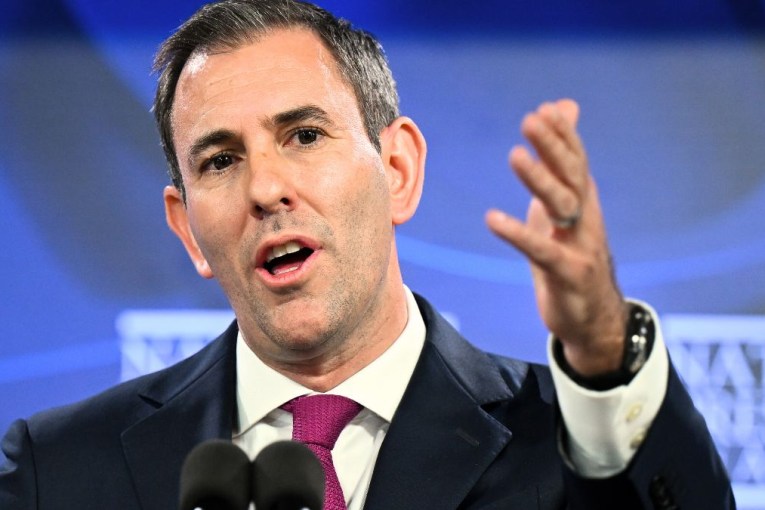Big US rate hike a warning for Australia


The jump in US interest rates may be a sign of things to come in Australia amid rising inflation. Photo: AAP
The biggest jump in US interest rates in 22 years could be a sign of things to come in Australia as both countries battle the scourge of inflation.
The US Federal Reserve raised its key interest rate by 0.5 percentage points on Wednesday, and financial markets are bracing for a similar move in June.
“The Reserve Bank of Australia would have watched this morning’s monetary policy developments in the US very closely,” Commonwealth Securities senior economist Ryan Felsman said.
“While US inflation readings are, so far, much higher than Australia’s, US monetary policymakers are faced with a somewhat similar domestic and global economic backdrop.”
The RBA raised its cash rate to 0.35 per cent from a record low 0.1 per cent this week, the first increase in more than a decade, with governor Philip Lowe warning of further hikes to come.
Sharply rising inflation
Prime Minister Scott Morrison has been defending his government’s credentials in the face of sharply rising inflation, and having previously argued interest rates will always be lower under a Coalition government.
He insists Australia is enduring global pressures, noting US rates are now up 75 basis points, as they are in Canada, and are up five times the rate in New Zealand as they are in Australia.
“These pressures are real,” Mr Morrison told ABC radio on Thursday.
But Labor leader Anthony Albanese told a business forum Australia is unprepared for the triple whammy of rising inflation, falling real wages and interest rate increases.
“This means Australia needs investments that ease the cost of living for families, help more Australians into work and into higher paid jobs, and grow the economy without adding to inflation,” he told the Australian Chamber of Commerce and Industry.
Building approvals continue to bounce around
New figures showed building approvals have continued their volatile performance since the start of the year, and could face further pressure in the months ahead as rising interest rates take their toll on the housing market.
The Australian Bureau of Statistics said total dwelling approvals dropped 18.5 per cent to 15,183 in March, following a 42 per cent spike in February.
This came after a 27 per cent slump in January when the Omicron COVID-19 variant hit council offices and the approval process.
Private sector house approvals fell three per cent to 9932 in the month, while other dwellings declined 29.9 per cent to 5004.
Looking ahead, economists expect the housing market, along with confidence, will be among the first areas hurt by rising interest rates.
“The RBA rate hike this week is set to be the first of several in 2022, with more to follow in 2023,” BIS Oxford Economics principal economist Timothy Hibbert said.
“The tightening of credit availability will act to taper activity in the residential property market, flowing through to weaker demand for new dwellings.”
Home loan arrears likely to increase
Global credit rating agency Moody’s Investors Service believes rising interest rates will see home loan arrears increase and property prices slow.
“This will push up floating-rate mortgage interest rates, worsening borrowers’ capacity to repay debt and increase the risk of delinquencies and defaults,” Alena Chen, a Moody’s vice president and senior credit officer, warned.
The ABS also released international trade figures for March, which showed the monthly surplus widened to $9.3 billion from $7.4 billion in February.
Imports fell five per cent, or by $1.9 billion, following a sharp rise in February, while exports were barely changed with a modest fall of $72 million.
Economists expect net exports could be a drag on economic growth when the national accounts are released on June 1.
-AAP








